Advance Your Policy Advocate Career

The umbrella of public policy and advocacy encompasses many different career paths, which is good news if you’re interested in pursuing one of them. According to the Bureau of Labor Statistics, employment for public policy workers is expected to grow by 13% by 2024. While an advanced degree is not mandatory for a career in this field, 48% of people obtain one. An advanced degree in Public Policy and Advocacy, such as a Master of Studies in Law (MSL), gives you deeper knowledge and expertise, making you more marketable in terms of employment.
McGeorge School of Law offers an MSL in Government Law and Policy. Our courses empower our students with the knowledge, professional skills, and broadened perspective required to succeed in a rapidly changing legal environment.
What Is Public Policy Advocacy?
Public policy advocacy encompasses a wide range of career possibilities and job duties. Essentially, advocates influence decision-makers – those making the laws and policies of our nations. Public policy advocacy can include:
- Lobbying
- Public education
- Capacity building
- Leadership development
- Litigation
Policy advocates become experts on specific issues and create a dialogue between stakeholders and government decision-makers. This involves creating proposals and then recommendations to alter existing policies, or creating new ones. Public policy advocates should be trusted advisors and respected professionals in their dealings, regardless of industry. Effective advocacy involves knowing where and when to exert your influence.
Why We Advocate
Public policy advocates are important because they strive to achieve the greatest good for the communities they serve. Law and policymakers cannot know everything, so advocates provide additional knowledge to lawmakers. Experts in their field can advise lawmakers on nuances they may not have been aware of. Advocacy ensures that the community:
- Has their rights protected and promoted
- Has their voice heard on issues that are important and affect their lives
- Has their views, wishes, and concerns considered when decisions are made and laws created that can affect their daily lives
Advocates are a crucial part of the democratic system, promoting an informed, healthy, and strong democratic society. They raise awareness for issues that otherwise would not have gained traction. Public policy advocates are an important bridge between policymakers and their constituents.
How McGeorge’s MSL Program Can Advance Your Public Advocacy Career
McGeorge’s MSL program in Government Law and Policy was built on our nationally-ranked program in public law at McGeorge’s renowned Capital Center for Law & Policy. Here, you learn from professors and practitioners who are experts in law, legislative processes, regulation, and policymaking.
With so many paths for a public policy advocate, you might think that a law degree is the only advanced degree option. Our program is designed for local, state, and federal agency employees, as well as lobbyists, legislative staff, and others who seek to enhance their skills in lawmaking, regulation, election law, and lobbying but who do not require a traditional law degree to succeed. With our courses, you gain real-world knowledge and develop practical skills. Our faculty are chosen for their outstanding teaching methods as well as their surpassing knowledge in government law and policy, enabling you to build marketable expertise under their guidance.
Our entire program takes place online, a structure that serves our students. Courses are asynchronous, meaning that students do not need to be online at any specific time. Students can schedule their coursework around other commitments. Whether you are employed or have other personal obligations, you can obtain your MSL without missing a beat. We help you personalize a coursework plan that meets your goals while being effective and engaging.
If you strive to make an impact in the world through public policy and advocacy, contact McGeorge School of Law today to get started.
Advance Your Policy Advocate Career Read More »








 Earth Day is an annual event that focuses on environmental issues. April 22, 2022 marked the observance of the 52
Earth Day is an annual event that focuses on environmental issues. April 22, 2022 marked the observance of the 52


